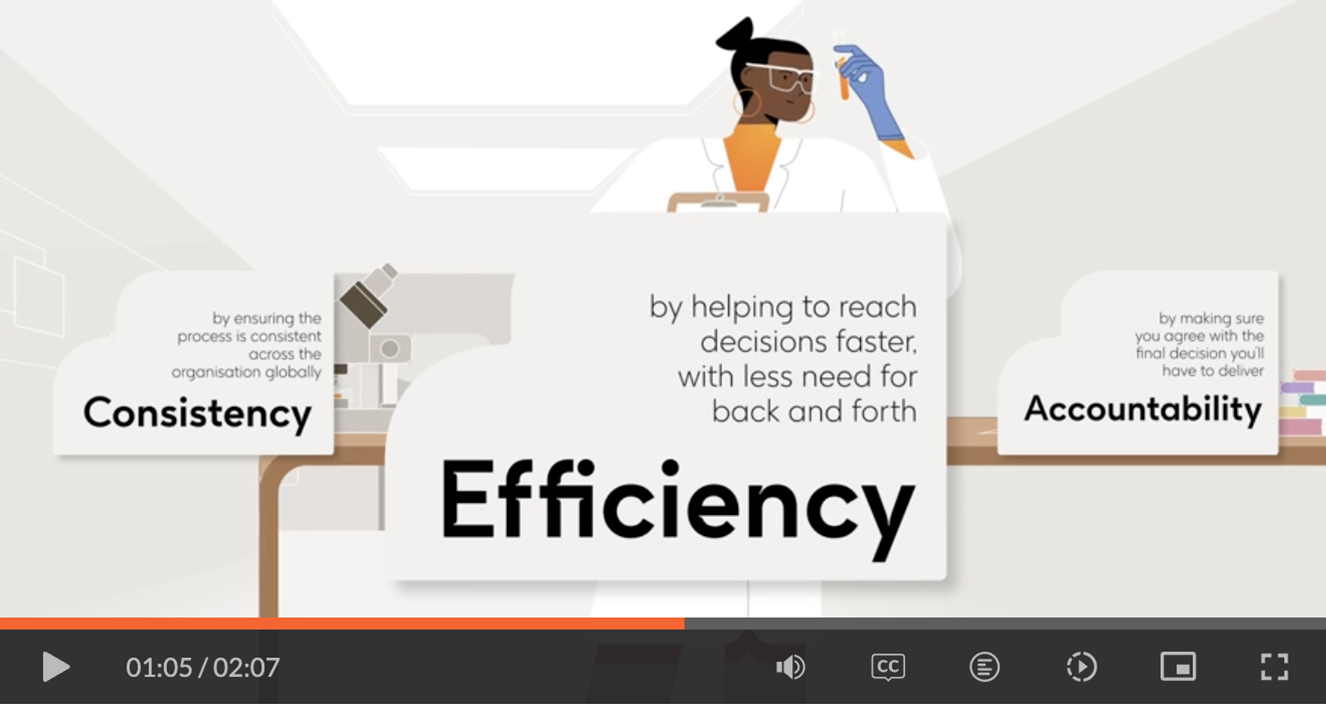How behavioural science can build better learning
2024
Client
Multinational pharmaceutical

A multinational pharmaceutical organisation was looking to update their disciplinary processes. They wanted to put the decision-making in the hands of managers – wherever in the world they were based.
Thankfully disciplinary procedures are rare, so not many managers had been through any training previously. That made it part change comms (for managers who had been through a similar process) and part simple education (for the majority who never had).
Using behavioural science to understand the learner mindset
The first step to this campaign – or any learning campaign – was understanding the learners. By understanding managers concerns, we could address each directly:
Managers were busy:
We made the learning simple, fast, and relevant to them
01
Managers were often anxious about dealing with heightened emotions:
We reassured them that this is common and a sign that they care (which is a good thing)
02
Managers were nervous about getting it ‘wrong’:
We offered them detailed information, and clear places to go for additional help and guidance
03
What we delivered
By its nature, disciplinary procedures are a serious topic – but there were still plenty of ways to make it engaging while underpinning the emotions of the user.
The training was all built around the idea of empowering managers. About letting them demonstrate the very judgement and experience that got them a managerial role in the first place. After getting that right, the rest was ultimately an easy-to-follow process.



The Outcome
From an HR perspective this was a huge change – updating multiple policies in multiple languages across different legal systems and time zones. But to the managers?
They wanted it to feel simple.
The key was to frame this process as something that empowers managers. Show them they’re trusted. That they’ve proven they’re capable of these decisions. And they continue to be supported every step of the way. By keeping the managers front and centre we were able to focus on the information that mattered.
Need help getting to grips with your audience?
Understanding your audience can be tricky even (maybe especially) when they’re part of your own team.
That’s why bringing in some expert outsiders can help you get to the heart of your audience’s emotions – even the ones they weren’t aware of themselves.
If you want support from some behavioural-science-trained experts who can help your audience feel understood, why not give us a shout?
